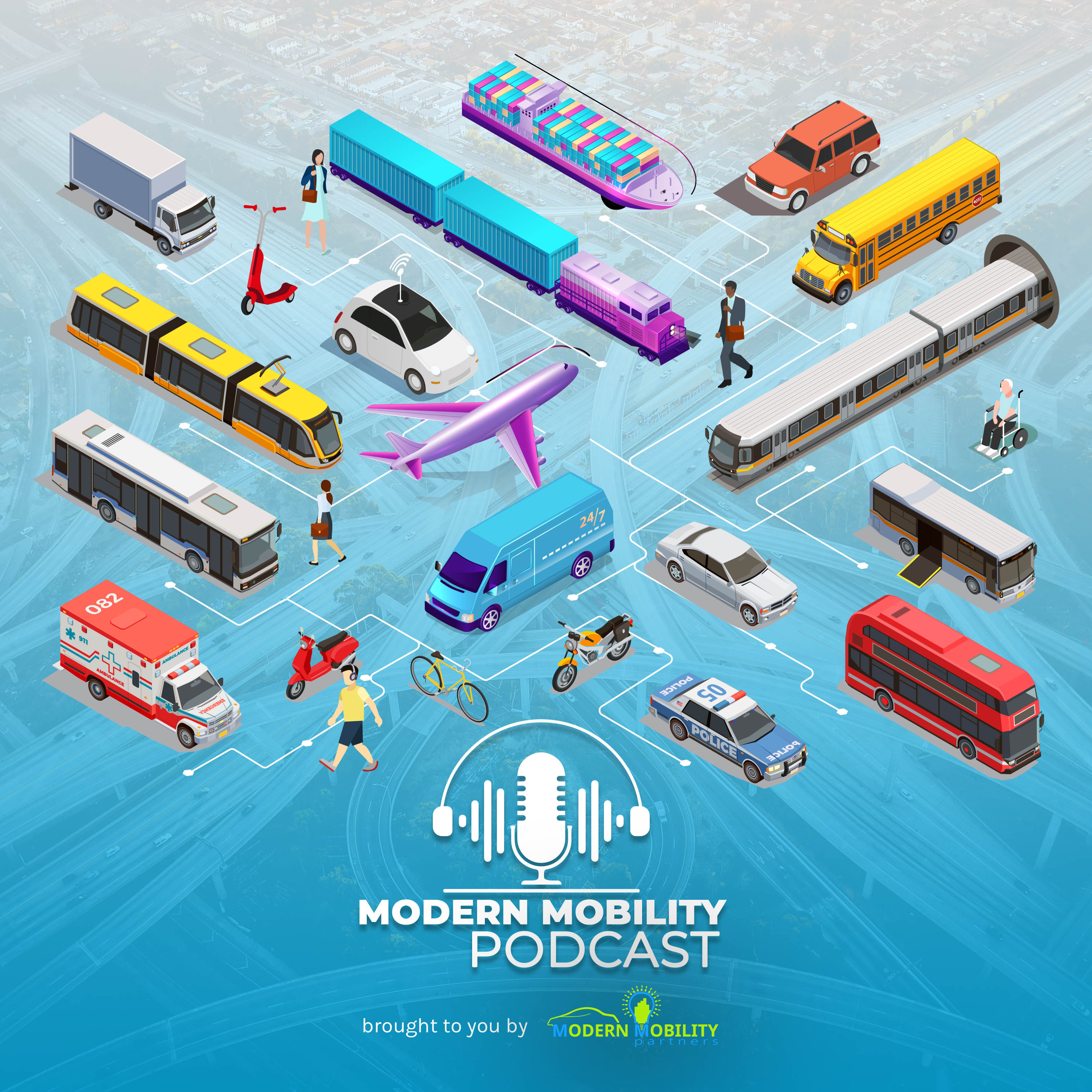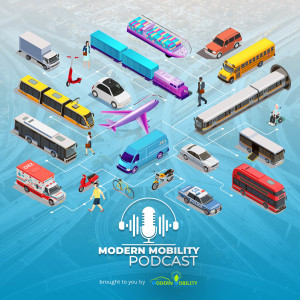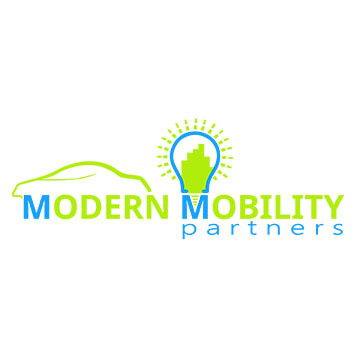
18.8K
Downloads
36
Episodes
This podcast is for transportation planners and enthusiasts who want to learn PRACTICAL SOLUTIONS to modern day transportation challenges. Learn step-by-step how to plan for new and emerging technologies, increasing e-commerce, resiliency, micromobility, and equity, just to name a few. Co-hosts, Keli Kemp and Kirsten Mote, are certified transportation planners, national experts, and thought leaders at Modern Mobility Partners, a female and minority-owned transportation planning and engineering consulting firm in Atlanta, GA. For more information, visit www.modernmobilitypartners.com.
Episodes

Wednesday Jul 17, 2024
Ep. 28: 6 Things to Know about Hydrogen Fuel Cell Vehicles
Wednesday Jul 17, 2024
Wednesday Jul 17, 2024
Episode Summary: Listen to national experts and certified planners, Keli Kemp and Kirsten Mote, both with Modern Mobility Partners, talk about Hydrogen Fuel Cell Vehicles. Listeners will learn the following in Episode 028:
- How do fuel cell vehicles work using Hydrogen?
- What is the efficiency and range of hydrogen fuel cell vehicles?
- What is the refueling time of hydrogen fuel cell vehicles?
- What are the impacts of hydrogen fuel cell vehicles on public health and the environment?
- What are the current market and models?
- Are there laws and incentives?
Links:
- Hydrogen fuel cells generate electricity through a chemical reaction between hydrogen and oxygen, producing electricity, water, and heat.
https://www.energy.gov/eere/fuelcells/fuel-cells
- Hydrogen fuel cell vehicles (FCVs) are more energy-efficient than traditional internal combustion engines and offer ranges comparable to gasoline vehicles, often exceeding 300 miles on a single fill-up.
https://afdc.energy.gov/vehicles/how-do-fuel-cell-electric-cars-work
- One of the major advantages of hydrogen FCVs over battery electric vehicles (BEVs) is the quick refueling time. Filling a hydrogen tank usually takes around 3-5 minutes, similar to refueling a gasoline car.
https://www.energy.gov/sites/prod/files/2015/07/f24/fcto_fcev_infographic_0.pdf
- Emissions from gasoline and diesel vehicles—such as nitrogen oxides, hydrocarbons, and particulate matter—are a major source of this pollution. Hydrogen-powered fuel cell electric vehicles emit none of these harmful substances—only water (H2O) and warm air.
https://afdc.energy.gov/fuels/hydrogen-benefits
- Several automakers, including Toyota, Honda, and Hyundai, have developed hydrogen fuel cell vehicles. Models like the Toyota Mirai, Honda Clarity Fuel Cell, and Hyundai NEXO are available in select markets with established hydrogen refueling infrastructure.
https://www.caranddriver.com/toyota/mirai
- Hydrogen fuel cell vehicles (FCVs) are supported by various laws and incentives aimed at promoting clean energy and reducing greenhouse gas emissions. These incentives include tax credits, grants, and rebates at federal, state, and local levels. Additionally, policies often support the development of hydrogen refueling infrastructure, research and development, and public-private partnerships to accelerate the adoption of hydrogen technology.
https://afdc.energy.gov/fuels/laws/HY
Co-Hosts:
- Keli Kemp, AICP, PTP has 25 years of experience in transportation planning and consulting and co-founded Modern Mobility Partners in early 2018 with Jennifer Zhan. Keli holds a M.S. degree in Urban Planning from Texas A&M University.
- Kirsten Mote, AICP has over 14 years of experience in transportation planning and is certified by MIT Media Lab’s Beyond Smart Cities program. Kirsten is an Associate Vice President and Director of Smart Mobility Planning with Modern Mobility Partners. Kirsten holds a M.S. degree in City Planning from Georgia Institute of Technology.
Guest Speaker:
- Ran Xu has over five years of experience in transportation engineering and modeling. Ran holds PE, PTOE, and RSP1 licenses. Ran has a M.S. degree in Transportation Engineering from Georgia Institute of Technology.
Modern Mobility Partners is an Atlanta-based women and minority-owned transportation planning and traffic engineering consulting firm. Service areas include smart mobility and transportation planning, demand modeling and traffic engineering, and data analytics and visualization.
If you are interested in learning more about Modern Mobility Partners, please visit www.modernmobilitypartners.com.
To obtain AICP CM credits, search for “Modern Mobility Partners” in the https://planning.org AICP CM portal to find all episodes.

No comments yet. Be the first to say something!